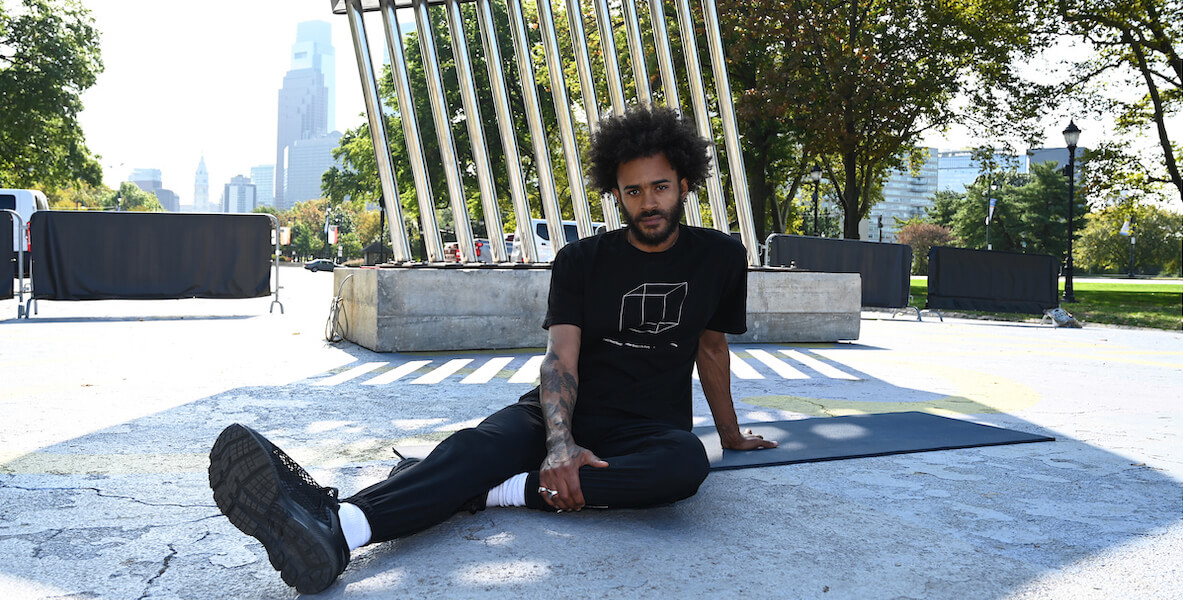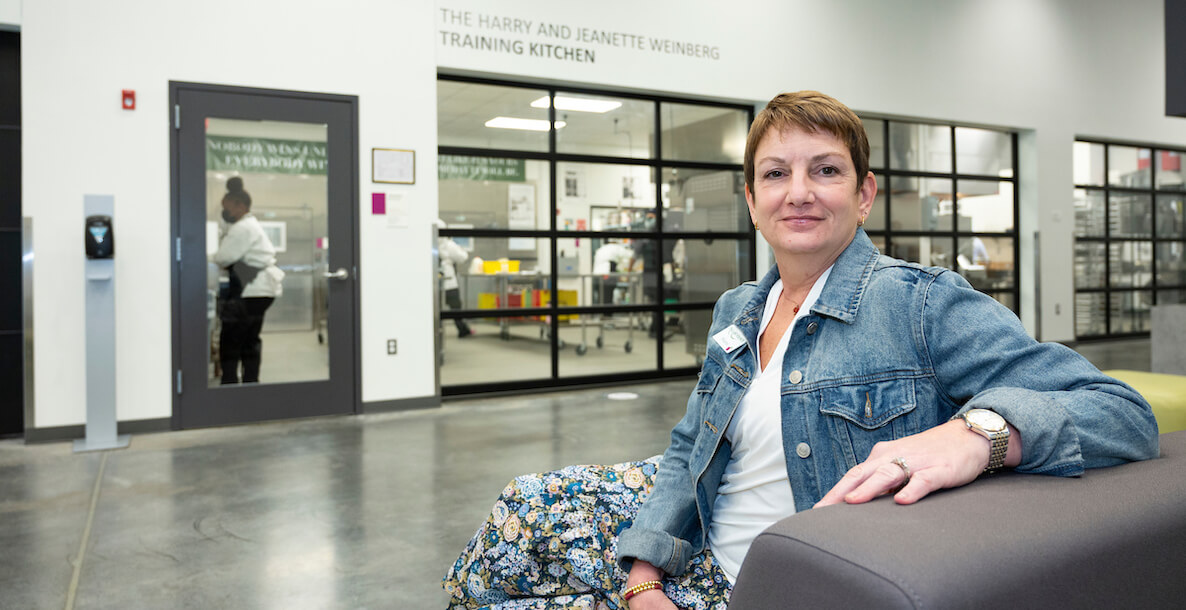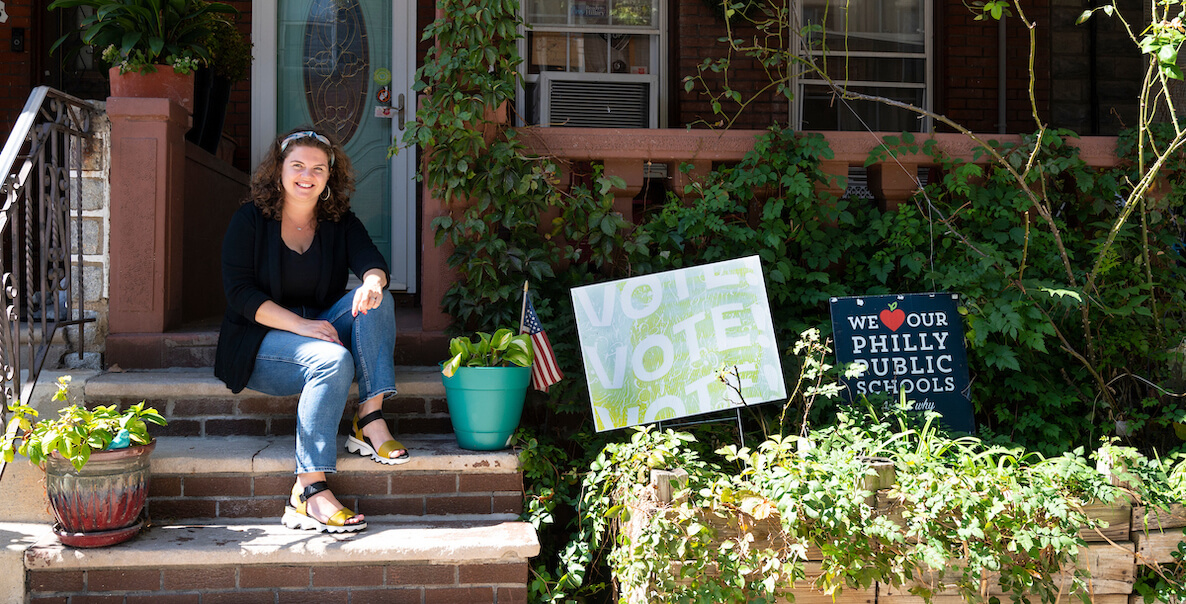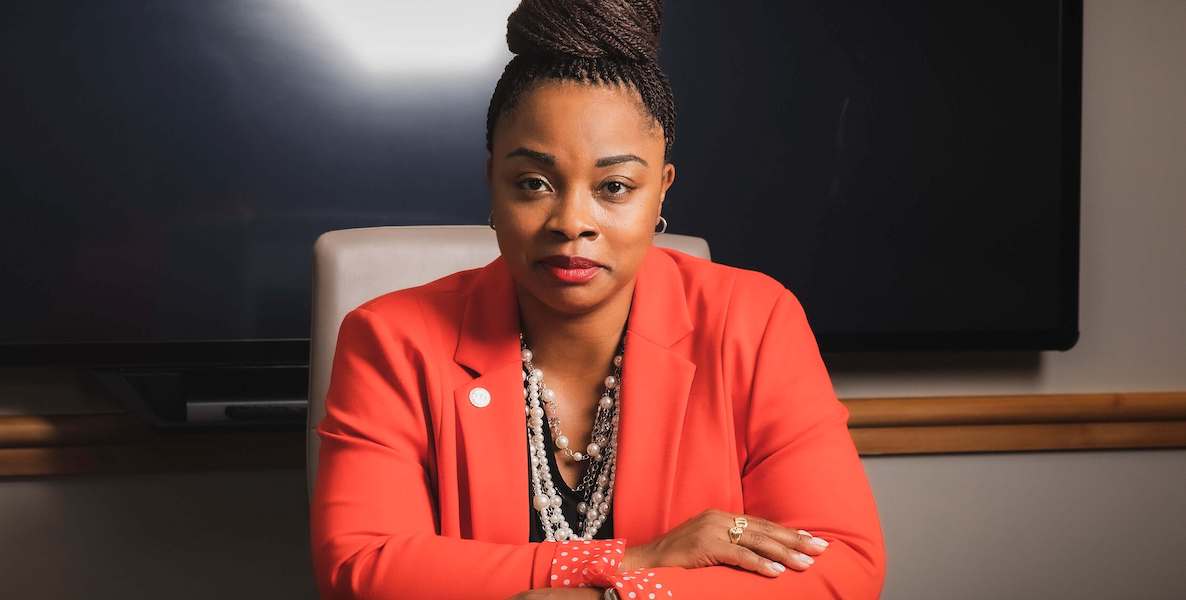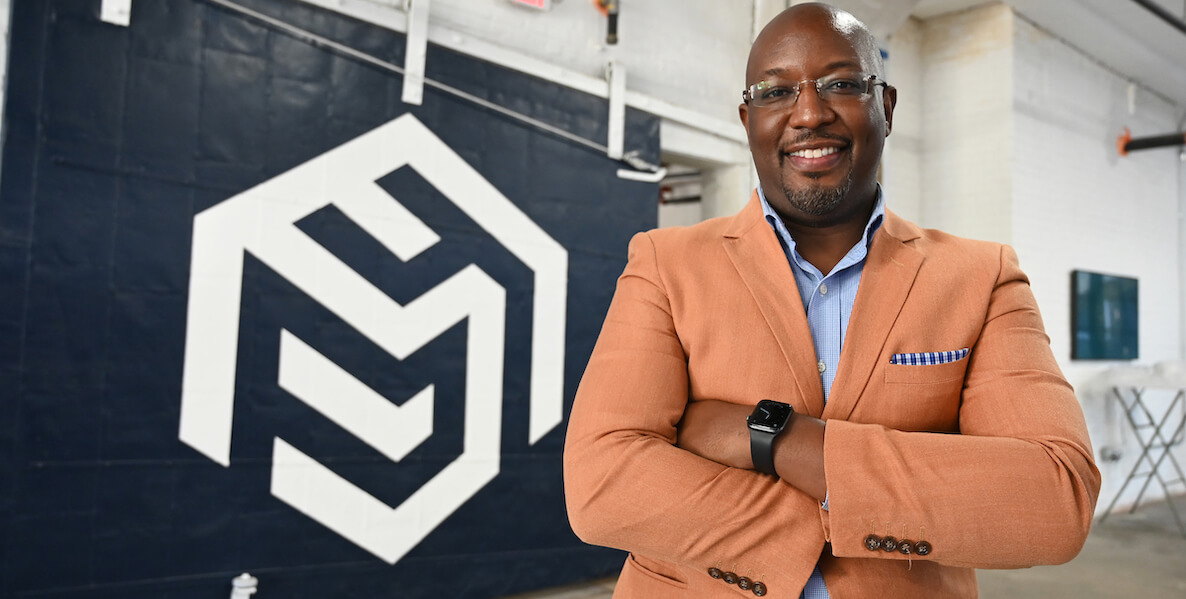Sulaiman Rahman was just 4 years old the first time he experienced imposter syndrome.
It was Halloween, and he’d excitedly dressed as his favorite superhero: Batman. But when trick-or-treaters arrived at his apartment in Northeast Philly and another Batman showed up? He ran to a corner, crying. His mother handed out candy, then came over to her middle son, asking what was wrong.
“That kid was the real Batman!” he said through sobs, embarrassment in his voice. His mother questioned him: What do you mean?
“He’s white.”
Already, you see, it had become ingrained in the young boy’s mind that, as a Black child in Philadelphia, he was somehow less than. Not good enough. It could’ve been the early exposure Rahman had to what he calls A Tale of Two Cities: During the week, he lived with his mom and two brothers in the predominantly white Northeast, where the streets were clean and his mother was one of the few Black clerical workers for the City.
“Many times I can just see the convergence of interests that is not as obvious to other people,” Rahman says. “I found myself being a connector, and I really do believe that we’re much stronger collectively than as the sum of our parts.”
On weekends, he lived with his father in housing projects on Queen Lane in Germantown, having a blast doing gymnastics on dirty mattresses, sure, but seeing filth and neglect all around him.
“Early on, I was already having to integrate and code-switch,” he says. “And I suffered from not feeling that self-esteem.”
He wouldn’t realize it for another couple decades, but already the young Rahman was forming the basis for what would be his lasting legacy in Philadelphia: the work he does, through his company DiverseForce, to place people of color in high-profile, high-impact roles in corporations and on boards.
RELATED: Tribaja connects Black workers with equitable jobs in tech
Next month will also see the opening of P4, a co-working hub in Germantown dedicated to convening major players in both the for-profit and nonprofit worlds. Because, as Rahman had begun to learn early on, there are simply too many silos, too much division, in our city. To move it forward, we have to come together.
A visionary early on
First, though, there was high school at George Washington High, where he excelled both in the classroom and on the football field. By senior year, college coaches started calling. Only, they weren’t from schools he’d ever heard of: They were from places like Columbia, Dartmouth and Penn.
With the financial support of a Mayor’s Award—Ivy League schools don’t give athletic scholarships—he decided to enroll at Penn as a football player and engineering major. Once on campus in West Philly, he started to get into entrepreneurship.
One night, he watched an infomercial about no-money-down real estate investing. And then? By the end of his junior year, he bought—with the refund from his financial aid—a four-unit apartment on the 4800 block of Walton Avenue in West Philly, renting out three units and living in the fourth.
RELATED: Aequo levels the playing field for women and minority developers
“My friends joked that I was a slumlord,” he says. But really, he was something totally different: a visionary.
By 1999 he was buying real estate and working for a developer, learning the finances of the business. He continued to have his finger on the pulse, always landing one step ahead of the zeitgeist: There was the email list he launched as the internet was just hitting the mainstream, targeted to young Black professionals, alerting them to social and networking events around the city; it ballooned to 30,000 subscribers, and was funded by more than 3,000 marketers who wanted to reach his audience.
“I recognized at that point the difference between performance and making things happen, where you start to cross over into influence and being in a position of power,” Rahman says.
That led to him developing a reputation as a convener; invites to join boards came in. Then-Mayor Michael Nutter appointed him to be on the board of PIDC, and he served on the boards at Young Involved Philadelphia, Philadelphia Film Society, the African American Chamber of Commerce; by age 32, he was asked to chair the board of the latter.
It was then that Rahman had a critical insight: “I recognized at that point the difference between performance and making things happen, where you start to cross over into influence and being in a position of power,” he says.
RELATED: Bridges to Wealth tackles Philly’s wealth gap through smart investment training
Around then he’d started working for a networking marketing business that had him traveling and training people from all around the world. “I had a team of more than 30,000 people and I learned how to build networks and bring people together and connect with them.” And though he loved the work, he was homesick for Philly, wanted to re-engage with the professional network in his hometown.
“I really thought about What is our next level of impact?” he says.
Building social capital—and influence
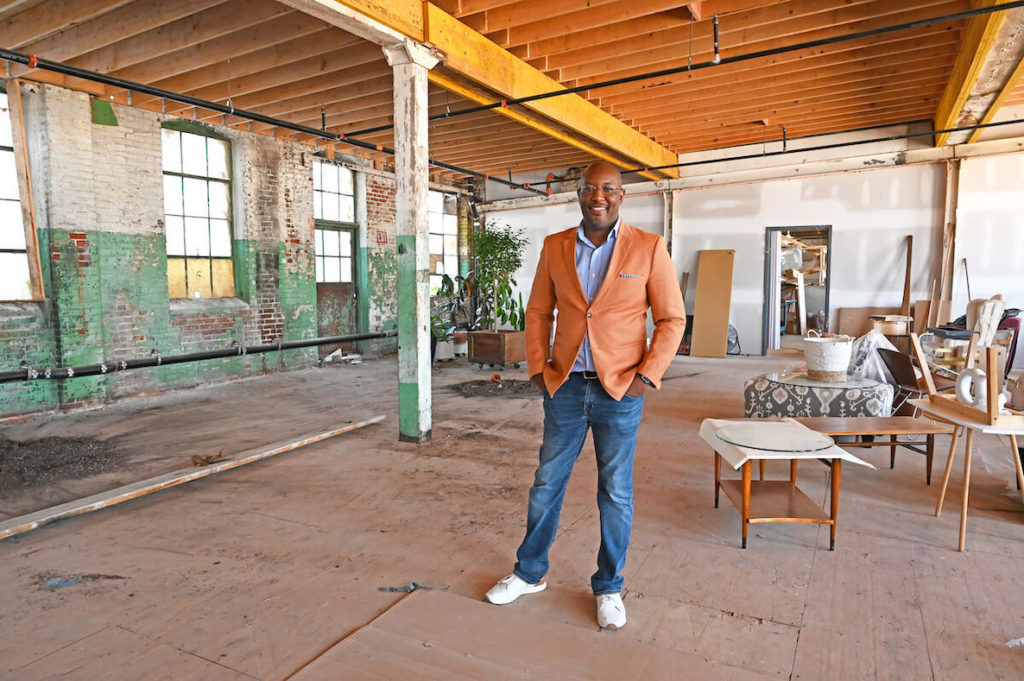
That’s how DiverseForce—Rahman’s multi-platform business, including an executive search arm, a training program in partnership with Penn, and a forthcoming co-working hub—was born and built.
The signature program is DiverseForce On Boards, a six-month training curriculum in partnership with Penn’s ImpactEd, around governance, leadership and diversity, equity, and inclusion (DEI). There’s that visionary gift again: While everyone else has started touting “DEI” as the corporate buzz phrase of 2021, Rahman has been tending to it for years.
“I knew from my own experience the benefits of serving on boards. Not only was it a leadership development experience for me, it was an opportunity to meet and build social capital throughout the region,” Rahman says. “There’s a dual benefit to serving on boards: what it can mean for the individual, and what it can mean for communities.”
“What I’m passionate about is building these pipelines of leadership and normalizing Black and Brown excellence in our city, equipping people with the right tools to make sure that they’re not just in the seat, but also having an impact,” Rahman explains.
Landing a spot in the program costs $5,000 and, in addition to individuals, companies like Comcast, Accenture, and J&J have stepped up to pay for employees; foundations like Lenfest, Knight, The William Penn Foundation, and The Philadelphia Foundation have covered participants, as well.
Since launching in 2017, the program has graduated over 160 people and filled over 145 nonprofit board seats. Alumni are serving on boards throughout the city—Kimmel Center, City Year, Bebashi. And more than 350 nonprofits organizations have signed on to be board matching partners.
RELATED: For IBX CEO Greg Deavens, diverse hiring is smart business
Simultaneously, the executive search arm of Rahman’s business is placing workers in roles that fall into the sweet spot of $100,000 to $250,000 salaries; they’ve placed people at organizations from Chase Bank to the William Penn Foundation. And in November, DiverseForce is opening the doors to P4, a membership community in Germantown with co-working space for individuals, public, private, and philanthropic partners, and limited office space rentals. Lendistry, Founders First, and NFL Alumni Performance Lab have all committed so far.
“What I’m passionate about is building these pipelines of leadership and normalizing Black and Brown excellence in our city, equipping people with the right tools to make sure that they’re not just in the seat, but also having an impact,” Rahman explains. “Many times I can just see the convergence of interests that is not as obvious to other people. I found myself being a connector, and I really do believe that we’re much stronger collectively than as the sum of our parts.”
It’s this that has put him among the ranks of The Citizen’s Generation Change Philly cohort, a partnership with the nonprofit Keepers of the Commons to provide educational and networking opportunities to the city’s most dynamic change-makers.
RELATED: What is Generation Change Philly all about?
Claire Robertson-Kraft, PhD, is the founder and director of ImpactED; she first met Rahman while the two were serving on the board at YIP. In addition to being the instructional partner for DiverseForce On Boards, she also leads the evaluations of the program—short-term for now, with eyes on longitudinal analysis.
While the numbers speak for themselves, she’s particularly moved by the perception shift that’s taking place as a result of DiverseForce On Boards’ work.
“This program is demonstrating that there is no shortage of incredible leaders in this city who would be well-equipped to serve on boards. And really what we’re trying to do is provide that kind of connection and social capital to help them make those connections and join boards,” she says. She believes it’s far more than a standard skill-building program: “They’re really leaving the program with some new tools and skills as well as a sense of purpose and commitment that is truly inspiring.”
“When I started speaking up and people started having paradigm shifts, I realized that learning about the role of a board member empowers you, empowers your voice,” Rahman says.
There’s a lot more to the curriculum than just learning how to read a financial statement. “It’s not just about representation,” she says. “It’s thinking about how alumni of the program can be catalysts for change on the boards they sit on. A lot of times people think about boards as a nominal position that raises some dollars, but really boards are governing the policies and practices of nonprofits.”
Jordan Rambo is managing director for the Philadelphia Metro office of Accenture, and was part of DiverseForce On Boards’ sixth cohort. When he entered the program, he had recently joined the Advisory Board of Back on My Feet; since then, he joined the board of Graduate! Philadelphia.
“DiverseForce On Boards prepared me for both organizations through a better understanding of questions to ask when I joined, around things like governance structure, commitment to diversity on both the board and members they serve, strategic vision, committees and the support they needed for those committees, fundraising structure and commitment from the board,” he says. “I also felt it helped me prepare for the networking aspect of bringing together what the non-profit needs and the network I’m already affiliated with, and how those worlds might intersect. It was an extraordinary experience and one I would highly recommend to anyone looking to join a board.”
RELATED: Penn class helps the formerly incarcerated launch their own businesses
For Rahman, the heart of the work he does every day in many ways comes back to lifting people out of that uncomfortable feeling he felt all those years ago, clad in his tiny Batman suit.
“I didn’t like the imposter syndrome. And I didn’t like knowing I had something to say on those boards early on but kind of kept quiet and went with the crowd, and seeing others do the same thing because they don’t really know what their role is on the board,” he says. “When I started speaking up and people started having paradigm shifts, I realized that learning about the role of a board member empowers you, empowers your voice.”
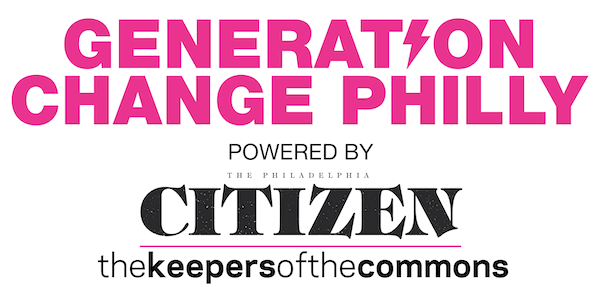
The Philadelphia Citizen is partnering with the nonprofit Keepers of the Commons on the “Generation Change Philly” series to provide educational and networking opportunities to the city’s most dynamic change-makers.
![]()
MORE GENERATION CHANGE PHILLY PROFILES
Header photo of Sulaiman Rahman | By Sabina Louise PierceGeneration Change Philly: The Intergenerational Poverty Buster



